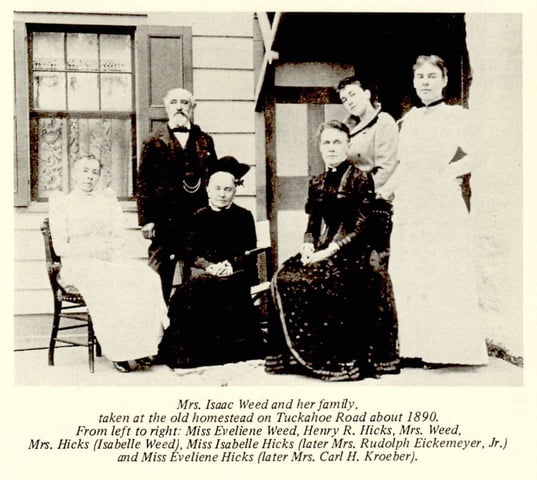
By Mary Hoar, City of Yonkers Historian, President Emerita Yonkers Historical Society, recipient of the 2004 Key to History, Member of the Yonkers Landmarks Preservation Board, and President Untermyer Performing Arts Council
Monday, February 26th
February 26, 1934: The funeral for hero Yonkers Police Officer Patrick Whalen was held at St. Denis Church. Whalen gave his life rescuing a child in the RKO disaster.
As his cortege traveled through Getty Square, hundreds stood at attention saluted as the cars passed. When they passed the RKO building, the Police Band played a dirge; when the cars passed St. Mary’s, the church bells played “Nearer my God to Thee” and “Lead, Kindly Light.” St. Mary’s students lined South Broadway in front of the church to pay tribute to the hero who died saving one of their schoolmates.
St. Denis Church overflowed with people from all faiths, retired and active police officers, city officials, friends, and people wanting to pay respects to this hero officer.
Tuesday, February 27th
February 27, 1941: Reports of a kidnapped baby in the Square sent YPD into action! When the mom saw her baby was gone, she ran to Getty Square Traffic Officer Gizicky who immediately contacted Lieutenant Comey. The alarm went out over the police radio system immediately, and patrol cars responded quickly with sirens blaring. They conducted a wide area hunt and quickly found the missing baby! None of the kind responding officers officially reported the incident. Why? Mom had left the baby in a carriage when she went to shop in Grant’s, what moms did in those days. She met a friend, chatted, and browsed several counters; when she went outside, her baby was gone! How did our brave officers find her little one so quickly? Mom had left the baby in its carriage inside the store entrance, not outside.
Wednesday, February 28th
February 28, 1939: Common Council President Albert Fiorillo received a threatening letter but didn’t flinch! Police Chief Edward Quirk ordered protection for the Council and assigned Detective William Daly to keep an eye on the Aldermen. The City Hall maintenance crew cleared the Council chamber, carefully inspecting it to ensure bombs weren’t hidden in corners, under desks or benches.
According to The Herald Statesman, “The Aldermen didn’t bat an eyelash… but welcomed the anonymous menace as an excuse for an outbreak of shenanigans that made the machinations of an old-time Bolshevik conspiracy fade into insignificance.” Instead, they played pranks on each other, hiding a cigar box with a long string under a desk or leaving a note written in red ink on a desk. Blocks of wood were pretend bombs. Someone planted a fake bomb on Ninth Ward Alderman Slater’s car, but he drove away without incident. A few minutes later, the fake bomb “exploded” on someone else’s car! The joker had put it on the wrong car.
Thursday, February 29th
February 29, 1944: Most of the Arthur G. Blair Shipyards were idle; they had laid off 3,000 people company wide and would not rehire anyone until the ships expected for repair and conversion work actually arrived.
February 29, 1956: The NYS Senate Cities Committee hearing on the measure authorizing transfer ownership of parts of Wells Avenue and surrounding streets to Otis Elevator’s Yonkers plant. Presiding Senator Thomas Desmond of Newburgh called the proposed transfer rule “very unusual legislation… particularly to a Legislature largely composed of lawyers. The Legislature would be loath to adopt this act.” Desmond suggested the plan be modified and negotiated with the opposition, further recommending the changes be acceptable to both the opposition and Otis.
The Herald Statesman challenged the legislation as “unwarranted, wasteful of public funds and possibly unconstitutional,” as soon as the Mayor and Common Council requested the legislation.
Friday, March 1st
March 1, 1913: Journalist John Edward Bruce, President of the Negro Society for Historical Research in Yonkers, was appointed Auxiliary Chairman of the Committee on Public Comfort for the Wilson- Marshall Inauguration! Bruce appointed Yonkers men to assist him in Washington for the event: Francis Moultrie, Samuel Giddings. Sterling Lambert, W. J. Spennie, Reverend A. H. Hill and Attorney Stephen Bennett.
March 1, 1930: Meeting at Eagles Hall on Elm Street, thirty-five men of all nationalities and backgrounds formed an unemployment council to fight unemployment in Yonkers. The started the campaign with a treasury of $2.45.
Saturday, March 2nd
March 2, 1928: James Lessner of South Broadway was awarded $50,000 for injuries suffered while working on a New York City elevator. The case, heard in White Plains Supreme Court by Justice Joseph Morschauser, was ended quickly when the twelve-man jury returned the verdict for the plaintiff after deliberating less than 15 minutes. Lessner, a elevator repair mechanic, was injured while working on an elevator. A janitor touched the control switch, sending the elevator crashing to the ground floor. Lessner had suffered such serious injuries, his arm was paralyzed.
Sunday, March 3rd
March 3, 1934: Yonkers Rotary Club launched a campaign against obscene literature, focusing on the type banned from mailing but still selling at Yonkers’ newsstands.
March 3, 1942: Habirshaw Cable and Wire Corporation, one of Yonkers’ top industries, began refitting its old Bare Wire Plant on Saw Mill River Road to convert it to a defense industry plant. Concentrated effort was underway to bring the old mills to the intense production level needed to meet war needs. Production need was so great, as soon as each machine was installed, it was “pressed into service,” without waiting for the rest of the department to be ready. Habirshaw manufactured many products: rubber and lead covered copper wires, paper insulated power cables, telephone and telegraph wires, signal wires, parkway cables, and other types of cables. The plant being refurbished had closed during the depression years but once employed 200 people.
Questions or comments on this column? Email YonkersHistory1646@gmail.com. For information on the Yonkers Historical Society, Sherwood House and upcoming events, please visit its website www.yonkershistoricalsociety.org, call 914-961-8940 or email info@yonkershistoricalsociety.org





